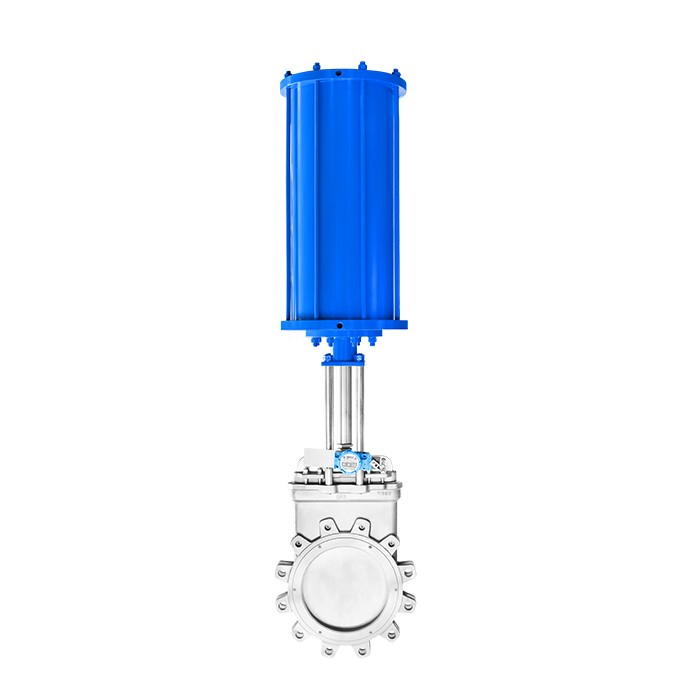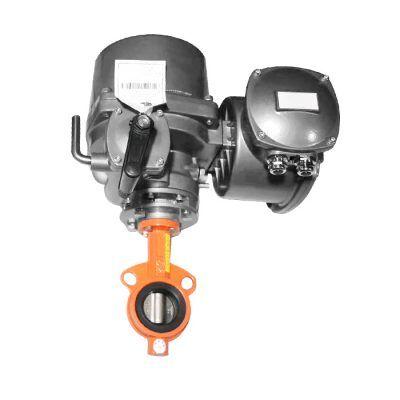Actuator valves are an essential component of modern control systems, enabling precise and efficient control of various processes and equipment. They are used in a wide range of industries, from oil and gas to water treatment, to regulate the flow of fluids, gases, and even solids. But what exactly is an actuator valve, and how does it work?
This comprehensive guide on actuator valves will provide you with all the information you need to know about this critical component of control systems. We’ll start with the basics, explaining what an actuator valve is and how it differs from other types of valves. We’ll then delve into the different types of actuator valves, including pneumatic, hydraulic, and electric actuators, and explore their applications.
What is an Actuator Valve?
An actuator valve is a type of valve that uses a mechanical device called an actuator to operate the valve. Actuator valves are typically powered by an external energy source, such as electricity, compressed air, hydraulic fluid, or a spring. It converts this energy into mechanical force to move the valve.

What Does an Actuator Valve do
Actuator valves have a wide range of applications in various industries, including oil and gas, water treatment, manufacturing, and more. Their primary function is to regulate the flow of fluids and gases, allowing for precise and efficient control of various processes and equipment.
Actuator valves can also be used to regulate pressure in pipelines and other systems. By adjusting the position of the valve, the pressure of the medium can be controlled to match the desired parameters.
Actuators and Industrial ball valves are an essential component in many industrial and commercial systems that require precise control of fluid or gas flow. Actuator valves can be found in a variety of applications, including oil and gas processing, chemical processing, water treatment, and HVAC systems.
Working Principle of an Actuator Valve
The working principle of an actuator valve is simple, but the design and construction can vary significantly depending on the application requirements and the actuation method used. Here are the general steps involved in the working of an actuator valve:
- Actuator receives a signal: The actuator receives a signal from a control system to open or close the valve.
- Power source activated: The power source of the actuator is activated, which can be an electric motor, compressed air, or hydraulic pressure.
- Actuator operates: The actuator then converts the energy from the power source into a linear or rotary motion, depending on the valve design.
- Valve position changes: As the actuator moves, it changes the position of the valve stem, which in turn changes the position of the valve disc or ball.
- Flow is regulated: The change in the valve position regulates the flow of fluid or gas through the pipeline or system.
- Feedback signal sent: The actuator sends a feedback signal to the control system to confirm the position of the valve and the flow rate.
Common Valve Actuator Types
There are different types of valve actuators in use, they include manual actuator, pneumatic actuator valve, electric actuator valve, and spring actuator valves. The type of valve actuator will depend on the application’s specific requirements, including the level of precision, speed, force, and control needed.
Manual Actuator
Manual actuators is operated by hand or by a mechanical lever. It is a simple and reliable solution for controlling the position of a valve or other control device. Manual actuators offer several advantages over other types of actuators. They are simple to install, operate, and maintain, and they do not require any external power source.
Pneumatic Actuator Valve
Pneumatic actuators use compressed air to operate the valve. The pneumatic actuator converts the energy of the compressed air into mechanical motion, which moves the valve to the desired position, controlling the flow of the medium. They are popular in process control applications and are available in both double-acting and spring-return configurations.
Electric Actuator Valve
Electric actuator valves are commonly used in industrial applications where precise control over the valve position is required. An electric actuator valve is a type of valve actuator that uses an electric motor to operate the valve. The electric motor is controlled by an electronic controller that receives signals from a control system, such as a PLC (programmable logic controller) or a DCS (distributed control system).
There are basically available in 2 types of configurations
- Rotary Configuration
- Linear Configuration

Spring Actuator
A spring actuator is a type of valve actuator that uses a spring to operate the valve. The spring is compressed or released to open or close the valve, respectively. When the actuator is in its resting state, the spring is in its natural, uncompressed state, and the valve is in its default position (usually either fully open or fully closed).
How to Choose the Right Actuator Valve
Choosing the right actuator from industrial valve companies depends on several factors, including the application requirements, valve type, actuation method, and budget. Here are some steps to help you choose the right actuator valve:
- Identify the application requirements: You need to determine the type of fluid or gas that will flow through the valve, the required flow rate, the pressure and temperature range, and the environmental conditions of the application.
- Select the valve type: There are different types of valves, such as ball valves, butterfly valves, gate valves, globe valves, and needle valves. Each type has its advantages and limitations, and you should choose the one that best suits your application requirements.
- Determine the actuation method: The actuation method can be manual, electric, pneumatic, or hydraulic. The choice depends on the application requirements and the available resources. For example, an electric or pneumatic actuator would be appropriate if the valve needs to be controlled remotely.
- Consider the budget: Actuator valves can vary significantly in price, and you need to determine the budget you can allocate for the valve. Keep in mind that a higher-priced valve may offer better quality and reliability, but it may not always be necessary for your application.
- Consult with an expert: If you are still deciding which actuator valve to choose, it’s always a good idea to consult with an expert in the field who can provide you with guidance and recommendations based on your application requirements.
By considering these factors, you can choose the right actuator valve that meets your application needs and provides reliable and efficient operation.
Contact Dombor to Get a Certificated Industrial Actuator Valve
Dombor is an industrial valve manufacturer and a leading and certified valve manufacturer in China. Certified industrial actuator valves are a smart investment that can provide many benefits, including increased reliability, safety, compliance, cost savings, and reputation.
Dombor Certified industrial actuator valves are designed to meet safety requirements and can withstand extreme conditions, making them ideal for use in hazardous environments.
Dombor certified quality control officer performs a quality inspection during the production of the actuator valve, and a series of tests after the production to be sure it meets the required standard. Contact Dombor to get a certificated industrial actuator valve!
Conclusion
In conclusion, an actuator valve is a device that controls the flow of fluids or gases in a system by opening or closing a valve. It is essential in many industrial applications, such as manufacturing, oil and gas, and water treatment.
Understanding the basics of how an actuator valve works and the different types available is important for selecting the right valve for a specific application. Dombor is always at your service to offer you the best industrial actuator valve.









